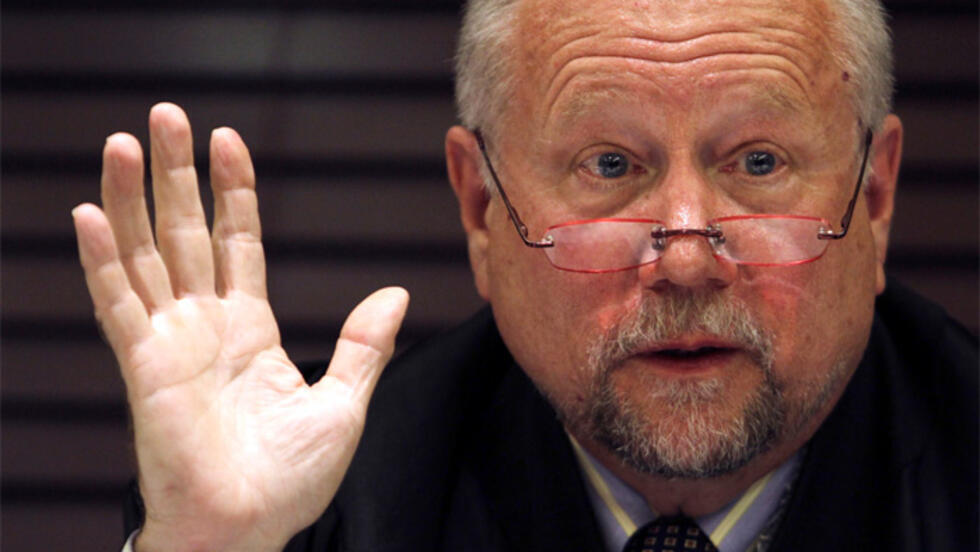Rwanda wanted me to disappear, says freed lawyer Erlinder
US law professor Peter Erlinder, who spent three weeks in a Rwandan prison accused of denying the 1994 genocide, has told RFI that authorities there tried to make him “disappear”. He returned to the United States on Tuesday after being released on health grounds.
Issued on: Modified:

Erlinder, who is defending a suspected genocide mastermind at the International Criminal Tribunal for Rwanda (ICTR), was taken into custody on 28 May.
“The nightmare began when six large men dressed in plain clothes surrounded my table and said ‘Come with me’,” he told RFI.
Interview: US defence lawyer Peter Erlinder
“They allowed me to go upstairs and get my wallet and my passport, and on the way out of the hotel I began expressing loudly enough for people to hear that I was being arrested and I wanted someone to call the American embassy.”
The day before, Erlinder had gone to the office of Kenya Airways to change a flight, but staff records bizarrely indicated he was no longer in Rwanda.
"The people at the office told me that actually I had left Kigali already, and even though I was standing there in front of their counter, their records showed I had left the country. At the time, I put it down to a computer glitch," he said.
Erlinder, who was not formally charged, said the international outcry that followed his arrest meant that Rwanda’s plans to “disappear” him had failed, but that this didn’t mean he would not die in detention.
“I remain convinced that without the international uproar that came from ordinary people, neither the US government nor the Rwandan government would have acted as soon as they did,” he said.
Erlinder incurred the ire of President Paul Kagame's government for the work he has done to defend controversial political opponent, Victoire Ingabire, as well as for raising questions about Kagame's complicity in the 1994 Rwandan genocide.
He said that before going to Rwanda, he had made several inquiries about safety issues, which came on the back of statements by national leaders in the US and Britain praising Rwanda for its positive changes. This led him to believe it was safe, he said.
“I also wrote letters to the State Department, to Hillary Clinton, Ban Ki-moon, to the president of the ICTR, to the embassy, and to the Rwandan embassy in Washington DC inquiring as to safety issues and asking them to let me know if things were different than appeared in the State Department report that was online, which essentially said that Rwanda was an emerging democracy,” Erlinder said.
After his experiences in Rwanda, Erlinder said there existed a type of Iron Curtain, which he dubbed the Musungu, or white person’s curtain, that separated the “real Rwanda” from the country seen by leaders such as former United States president Bill Clinton, former British prime minister Tony Blair and French President Nicolas Sarkozy.
If the Rwandan authorities ask him to return, Erlinder, a professor at the William Mitchell College of Law in Saint Paul, Minnesota, said he would follow the law, with the expectation that the UN will provide him with immunity from prosecution.
Daily newsletterReceive essential international news every morning
Subscribe